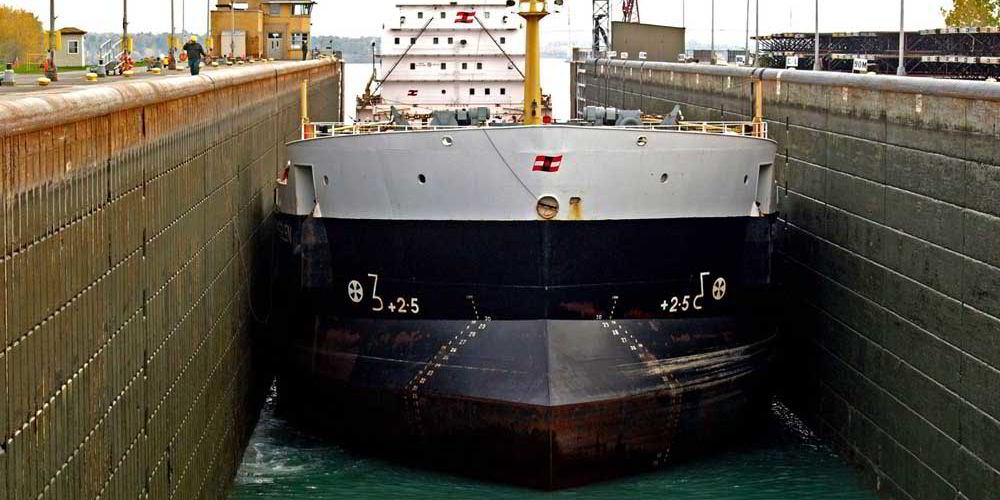The cost of shipping on the Great Lakes could increase next year as the US Coast Guard proposes a revenue increase for piloting services.
The new proposal represents a 17% increase in pilotage costs for the roughly 230 ships that voyage on the Great Lakes annually.
The request comes as regional dry bulk shipping firms including Canada’s Fednav and Canfornav, Sweden’s Borchart, Polsteam, and shipmanagers Spliethoff Transport and Wagenborg Shipping continue to fight the current pilotage fee structure in a US federal lawsuit.
Pilotage costs account for about 17% of operating expenses for Great Lakes bulkers and tankers. The new rules would bring pilotage costs up to 19.1% of total operating expenses.
The USCG, which sets rates and revenue for pilots escorting ships on the St. Lawrence Seaway and the US and Canadian waters of the five major lakes, issued a proposed federal rulemaking last week outlining the rate increase.
It said the three Great Lakes pilots association need revenue of $21.7m during the 2017 shipping year. That would represent an increase of $2.6m over the estimated revenue for the 2016 shipping year. Total pilot compensation makes up the bulk of the increase, rising from $12.1m this shipping year to $14.7m next year.
The USCG says the increase is the result of having to add eight new pilots, who will begin work in the 2017 shipping season. The USCG added that per pilot compensation is unchanged from the 2016 final rule at $326,000 per year.
The eight new pilots will be needed older pilots who are expected to retire in the coming years. The USCG says the pilots need to be trained ahead of the actual retirements in order to keep marine traffic moving.
Trade group says rate proposal is 'entirely inappropriate'
Steve Fisher, executive director of the American Great Lakes Ports Association, says opposes the proposed fee increases, as it further impacts ports and shipowners in the Great Lakes. Great Lakes pilotage fees have increased 24% last year, and 20% in 2015.
"It impacts competitiveness of Great Lakes shipping," Fisher said.
Fisher, whose group is also a plaintiff in the federal lawsuit challenging the 2016 rate increase, said it is not appropriate for the USCG to push through another increase while the earlier increase is still being litigated. The assumptions that the USCG uses for the new rate increase are being targeted in the lawsuit, Fisher says.
He says the 2016 rate increase came about largely through a boost in pilot salaries, which went from $235,000 per year to $326,000 per year. The earlier salary level was set by salaries earned by masters aboard US Jones Act vessels. The pilots, though, pushed for salaries which were more comparable to Canadian government employees.
"The USCG is snowballing these bad decisions," Fisher said. "It is entirely inappropriate for the USCG to put forward a rate proposal when the underlying assumptions are being called into question."



